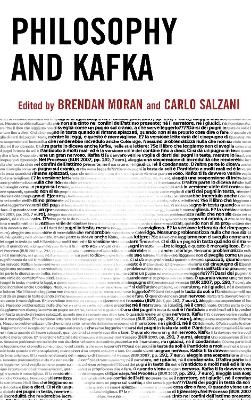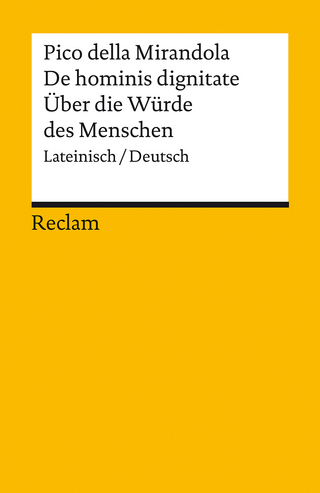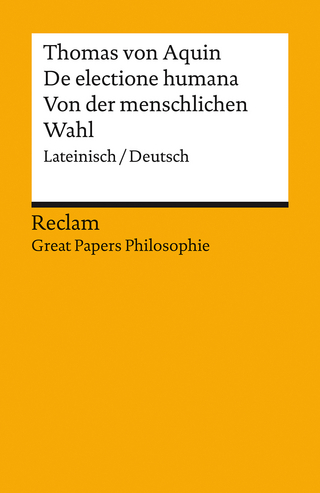
Philosophy and Kafka
Lexington Books (Verlag)
978-1-4985-1126-1 (ISBN)
The proposed collection brings together essays that interrogate the relationship of philosophy and Kafka, and offer new and original interpretations. The volume obviously cannot claim completeness, but it partially does justice to the multiplicity of philosophical issues and philosophical interpretations at stake.
This variety informs the composition of the volume itself. A number of essays focus on specific philosophical commentaries on Kafka’s work, from Adorno’s to Agamben’s, from Arendt’s to Benjamin’s, from Deleuze and Guattari’s to Derrida’s. A number of essays consider the possible relevance of certain philosophical outlooks for examining Kafka’s writings: here Kafka’s name goes alongside those of Socrates, Kant, Kierkegaard, Nietzsche, Wittgenstein, Buber, Heidegger, Blanchot, and Levinas. Finally, a number of essays consider Kafka’s writings in terms of a specific philosophical theme, such as communication and subjectivity, language and meaning, knowledge and truth, the human/animal divide, justice, and freedom. In all contributions to the volume, such themes, motifs, and interpretations arise. To varying degrees, all essays are concerned with the relationship of literature and philosophy, and thus with the philosophical significance of Kafka’s writings.
Brendan Moran is currently research scholar at the Calgary Institute for the Humanities, and Adjunct associate professor at the University of Calgary, Canada, where he has taught in the Department of Philosophy, the Faculty of Humanities, and the Faculty of Arts. Under the anagrammatic “pseudonym,” Monad Rrenban, he has published Wild, Unforgettable Philosophy, a book on Walter Benjamin’s early writings. He has also published essays on Benjamin, Agamben, and Salomo Friedlaender, and is completing a book on Benjamin’s Kafkan politics. Carlo Salzani holds a degree in Philosophy from the University of Verona (Italy) and a PhD in Comparative Literature from Monash University (Australia). He has published Crisi e possibilità: Robert Musil e il tramonto dell’Occidente (Bern: Peter Lang, 2010), Constellations of Readings: Walter Benjamin in Figures of Actuality (Oxford: Peter Lang, 2009) and co-edited Essays on Boredom and Modernity (Amsterdam: Rodopi, 2009). He has translated into Italian some of Slavoj Žižek’s books.
Introduction
Part 1: Philosophical Investigations
Chapter 1: I Don’t Want to Know that I Know: The Inversion of Socratic Ignorance in the Knowledge of the Dogs
Chapter 2: Kafka’s Empty Law: Laughter and Freedom in The Trial
Chapter 3: A Kafkan Sublime: Dark Poetics on the Kantian Philosophy
Chapter 4: The Everyday’s Fabulous Beyond: Nonsense, Parable, and the Ethics of the Literary in Kafka and Wittgenstein
Chapter 5: You’re nobody ‘til somebody loves you: Communication and the Social Destruction of Subjectivity in Kafka’s Metamorphosis
Chapter 6: Kafka’s Insomnia
Part 2: Philosophical Topics
Chapter 7: Animal Bachelors and Animal Brides: Fabulous Metamorphosis in Kafka and Garnett
Chapter 8: Kafka’s Political Animals
Chapter 9: The Calamity of the Rightless: Hannah Arendt and Franz Kafka on Monsters and Members
Chapter 10: Knowing Life Before the Law: Kafka, Kelsen, Derrida
Part 3: Philosophical Readings
Chapter 11: Anxiety and Attention: Benjamin and Others
Chapter 12: On the Mimesis of Reification: Adorno’s Critical Theoretical Interpretation of Kafka
Chapter 13: “In the Penal Colony” in the Philosophy of Gilles Deleuze
Chapter 14: In a Messianic Gesture: Agamben’s Kafka
Index
About the Contributors
| Co-Autor | Paul Alberts, Ronald Bogue, Chris Danta |
|---|---|
| Verlagsort | Lanham, MD |
| Sprache | englisch |
| Maße | 153 x 230 mm |
| Gewicht | 454 g |
| Themenwelt | Geisteswissenschaften ► Philosophie ► Philosophie des Mittelalters |
| Geisteswissenschaften ► Philosophie ► Philosophie der Neuzeit | |
| Geisteswissenschaften ► Sprach- / Literaturwissenschaft ► Anglistik / Amerikanistik | |
| Geisteswissenschaften ► Sprach- / Literaturwissenschaft ► Literaturwissenschaft | |
| ISBN-10 | 1-4985-1126-0 / 1498511260 |
| ISBN-13 | 978-1-4985-1126-1 / 9781498511261 |
| Zustand | Neuware |
| Haben Sie eine Frage zum Produkt? |
aus dem Bereich


